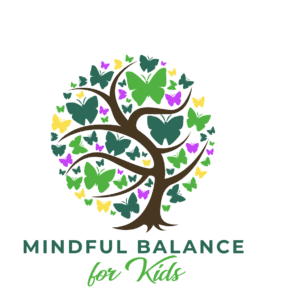“Kristen and her approach to education is amazing! Every kiddo is unique, and she uses new and different teaching techniques that don’t appear as “school” but are more fun and engaging, while learning is happening at the same time. It’s fun!
I love how she can reinforce a learning tactic multiple ways in just 1 game/lesson, which really helps my daughter to lock it in. She’s good at reading her energy level and knowing when to pause for some silly fun or switch it up to something different to keep my daughter engaged.
She really caters to the needs of my daughter, and in just a short amount of time have already seen great improvement and more excitement around learning.”
Thanks!
Tara Ambuul
LITERACY TUTORING
The Essential Foundations of Reading and Writing For
Neurodivergent Learners Ages 4-7 Years

TUTORING
Approaches, Lessons, Assessments & Care
Meeting Your Child Where They Are NOW:
Meeting your child right where they are means understanding their unique abilities, interests, and current developmental stage. My lessons are designed to embrace each child’s individuality, tailoring activities that align with their current skills to build a solid foundation for growth.
I take the time to observe and interact with each child, getting to know their strengths and areas for improvement. I tailor activities to combine the right balance of challenge and support, creating a nurturing environment that respects your child’s abilities.
This approach fosters confidence and joy in their learning journey.
A Structured Approach:
“Structured Literacy instruction is systematic and cumulative. Systematic means that the organization of material follows the logical order of the language. The sequence must begin with the easiest and most basic concepts and elements and progress methodically to more difficult concepts and elements. Cumulative means each step must be based on concepts previously learned. International Dyslexia Association. (n.d.). Effective reading instruction for students with dyslexia. DyslexiaIDA.
https://dyslexiaida.org/effective-reading-instruction-for-students-with-dyslexia/
A Multisensory Approach:
In MSL instruction, consistent reinforcement means actively helping students make connections between what they see, hear, and do. For example, as they learn to read and write, students are taught to associate the letters they see (Visual) on a page with the sounds those letters make (Auditory-what they hear). At the same time, they may engage in activities that involve physically forming the letters or using their hands to trace them (Tactile-what they feel). This coordinated use of sight, sound, and touch helps strengthen their understanding and mastery of language. http://www.learningaly.org



Getting Back to the Basics….
It’s Essential!
Phonological and Phonemic Awareness: Letters, words, parts of words, syllables, rhyming, and sounds of language. Identify, blend, isolate and manipulate sounds.
Language Development (oral language) Letter sounds, rhythms and patterns through children’s songs/music and rhyming books. Alphabet awareness and language comprehension; following directions, answering questions about a story, identifying the main idea, understanding the meaning of new words and retelling a story.
Social/Emotional Development; Helping children understand who they are, what they are feeling and what to expect when interacting with others. Developing positive relationships while managing and expressing emotions.
Develop social skills like sharing,interacting.
Manage emotions in appropriate ways.
Gain confidence in their own abilities.
Recognize and label emotions.
Pre-Reading/Reading Readiness; Experiencing and understanding books and texts, i.e. parts of a book, which way we read, what’s happening in the story, which part or word comes next, identifying rhymes, and familiar words in their environment.
Writing Readiness: Visual Discrimination and motor skills: Drawing lines, shapes, and letter formations.
Early Mathematic Skills: Recognizing, sorting, and writing/drawing shapes, colors, quantities, and numbers. Identifying more, less, same and different, patterns and counting by 5’s and 10’s.

Assessments, Observations and Personalized Care
Personalized care is at the heart of my approach, and assessments play an important role in helping me tailor the learning experience to fit your child’s unique needs. My primary goal is to support your child at their own pace, considering their academic, social, emotional, physical, and cognitive development. I will l foster an environment that is engaging, enjoyable, and inspiring, ensuring that our time together feels inviting and safe. This alows us to connect meaningfuly and create a sense of familiarity and comfort in a nurturing atmosphere. I will l utilize a diverse range of comprehensive formal and informal assessment tools from Pre-K to Kindergarten to evaluate and holisticaly support your child’s development. This approach ensures a thorough understanding of their progress and needs, including;
PAST – Phonological Awareness Screening Assessment
Observational Notes/Ongoing Records from 25 years classroom experience.
Brigance Developmental Screening Tools.

Additional Assessment Gathering Tools:
To support a more complete understanding of your child’s overall Development:
*Note: Kristen offers her dedicated support for any form-related assistance you may need.
Teacher Feedback Form (If applicable)
Parent Feedback & Background Form






